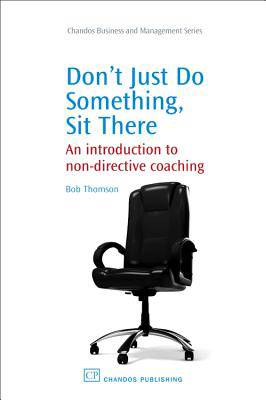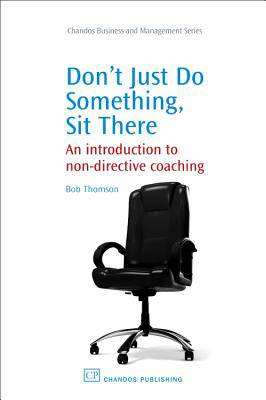
Door een staking bij bpost kan je online bestelling op dit moment iets langer onderweg zijn dan voorzien. Dringend iets nodig? Onze winkels ontvangen jou met open armen!
- Afhalen na 1 uur in een winkel met voorraad
- Gratis thuislevering in België vanaf € 30
- Ruim aanbod met 7 miljoen producten
Door een staking bij bpost kan je online bestelling op dit moment iets langer onderweg zijn dan voorzien. Dringend iets nodig? Onze winkels ontvangen jou met open armen!
- Afhalen na 1 uur in een winkel met voorraad
- Gratis thuislevering in België vanaf € 30
- Ruim aanbod met 7 miljoen producten
Zoeken
€ 48,95
+ 97 punten
Omschrijving
Don't Just Do Something, Sit There offers anyone who would like to learn how to coach or to develop their existing coaching skills a practical guide to coaching people using a predominantly non-directive approach. It explores how a coach can help others to think through their situation and find their own way forward, one which reflects the reality and constraints of their situation. The book considers the skills which underpin successful coaching - listening attentively, asking questions that help the other to think, and playing back to communicate or check understanding. It explores the spectrum of directive to non-directive coaching, considers practical aspects such as confidentiality, describes a range of tools that a coach might use, and looks at how a line manager can adopt a coaching style. It also considers the philosophical and psychological foundations of non-directive coaching.
Specificaties
Betrokkenen
- Auteur(s):
- Uitgeverij:
Inhoud
- Aantal bladzijden:
- 212
- Taal:
- Engels
- Reeks:
Eigenschappen
- Productcode (EAN):
- 9781843344292
- Verschijningsdatum:
- 31/01/2009
- Uitvoering:
- Paperback
- Formaat:
- Trade paperback (VS)
- Afmetingen:
- 162 mm x 233 mm
- Gewicht:
- 299 g

Alleen bij Standaard Boekhandel
+ 97 punten op je klantenkaart van Standaard Boekhandel
Beoordelingen
We publiceren alleen reviews die voldoen aan de voorwaarden voor reviews. Bekijk onze voorwaarden voor reviews.











